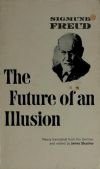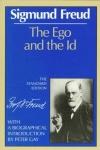
The Future of an Illusion is a 1927 book by Sigmund Freud, describing his interpretation of religion's origins, development, psychoanalysis, and its future. Freud viewed religion as a false belief system.

『精神分析入門』は、精神科医ジークムント・フロイトにより発表された講義録をまとめた著作である。 オーストリアの心理学者フロイトは精神分析を提唱し、1915年から1917年にかけてウィーン大学で一般向けに講義を行った。本書はその講義の内容が編集をへて収録されている。その構成は第1部「錯誤行為」、第2部「夢」、第3部「神経症総論」、そして精神分析入門の続編から成り立っている。 …

Totem and Taboo: Resemblances Between the Mental Lives of Savages and Neurotics is a 1913 book by Sigmund Freud. It is a collection of four essays first published in the journal Imago: "The Horror of Incest", "Taboo and Emotional Ambivalence", "Animism, Magic and the Omnipotence of Thoughts", and "The Return of …

Psychopathology of Everyday Life is a 1901 work by Sigmund Freud, based on his researches into slips and parapraxes from 1897 onwards, - one which became perhaps the best-known of all his writings. Jacques Lacan considered it one of the three key texts for an understanding of the unconscious, alongside The …

This volume contains all of Freud's major writings on sexuality. It begins with his revolutionary "Three Essays on the Theory of Sexuality" (1905). It also includes shorter papers on normal and abnormal sexuality, illustrated by numerous examples provided by Freud's own patients. These writings follow the full range …

The Ego and the Id is a prominent paper by the psychoanalyst Sigmund Freud. It is an analytical study of the human psyche outlining his theories of the psychodynamics of the id, ego and super-ego, which is of fundamental importance in the development of psychoanalysis. The study was conducted over years of meticulous …

 English
English Español
Español Deutsch
Deutsch



